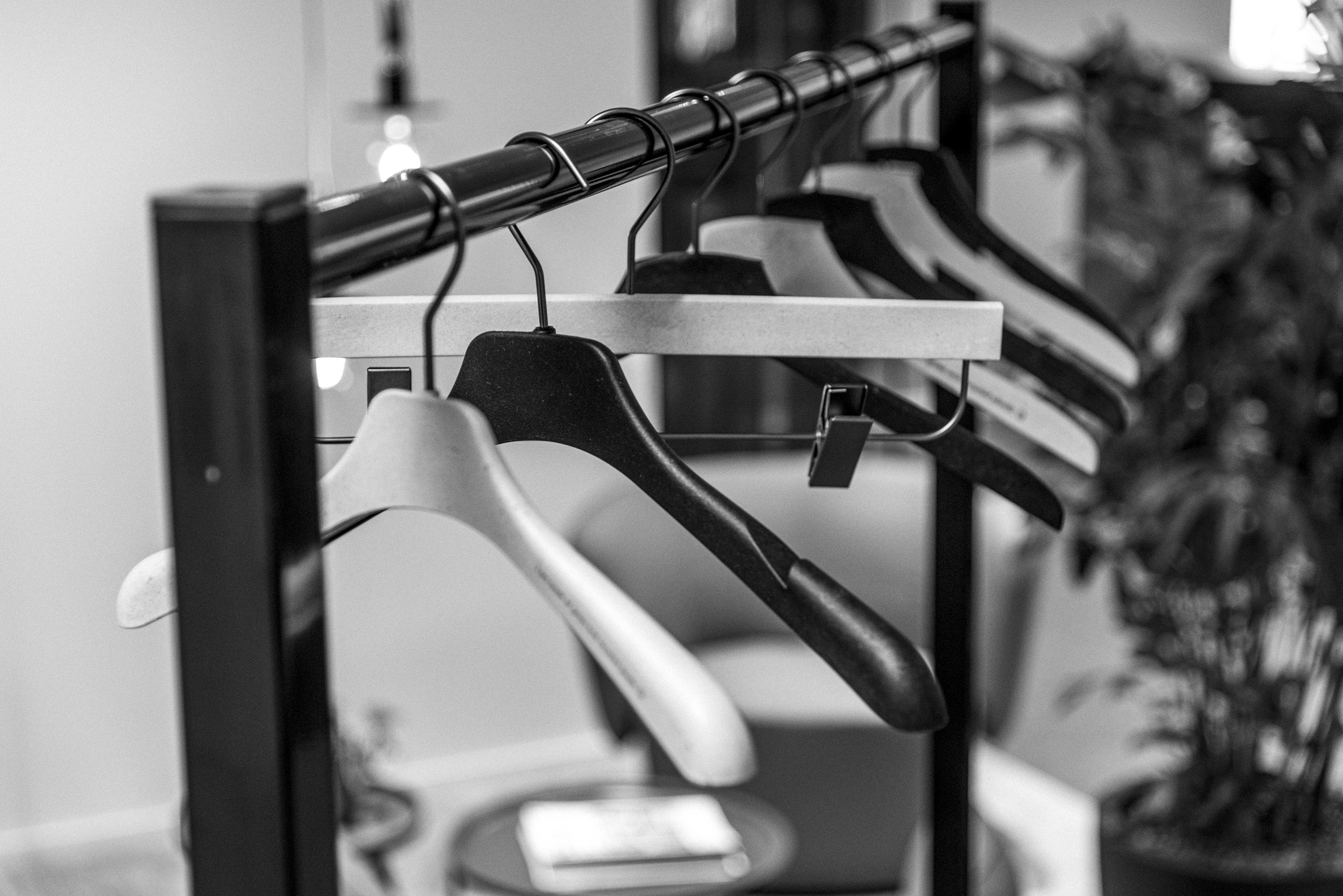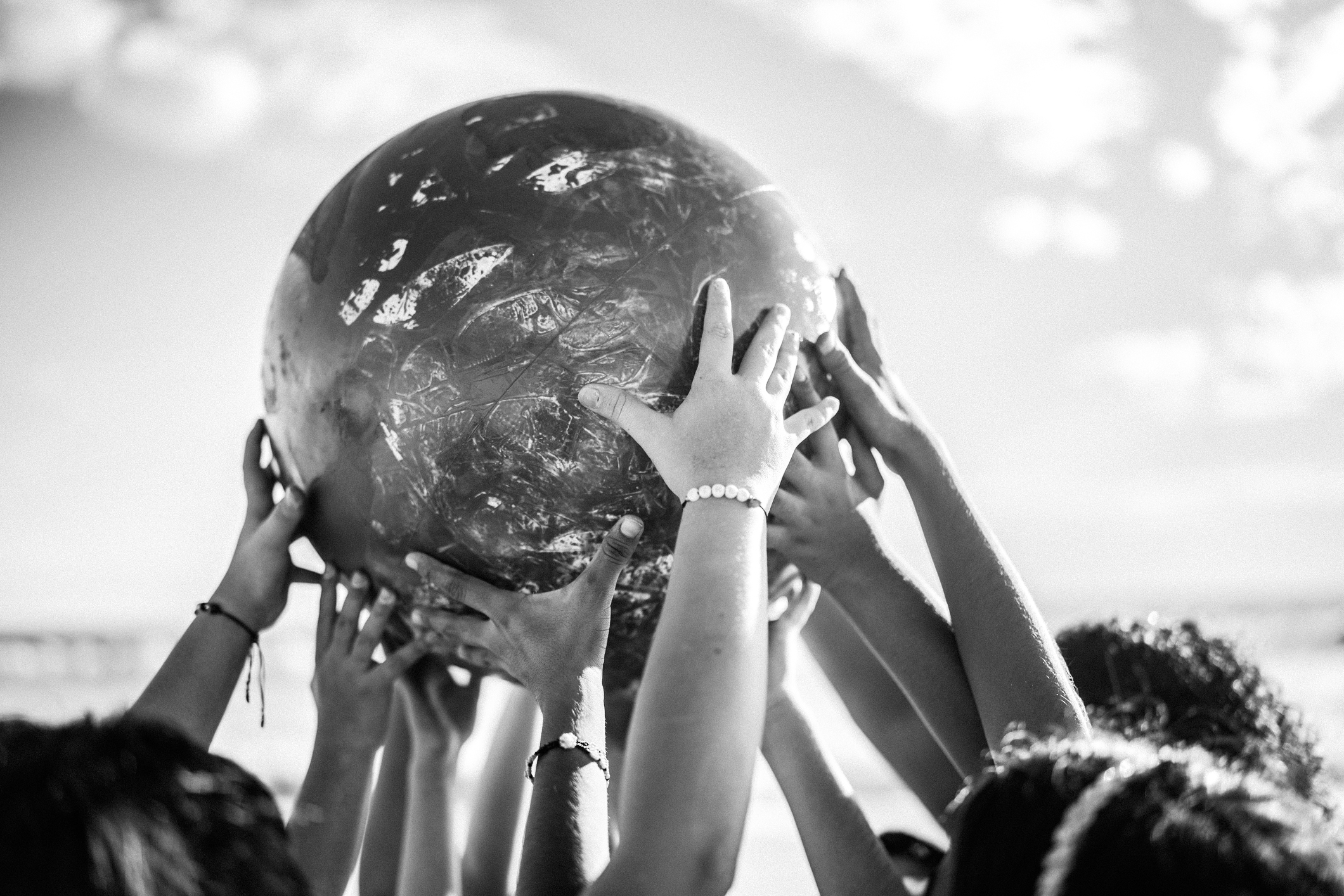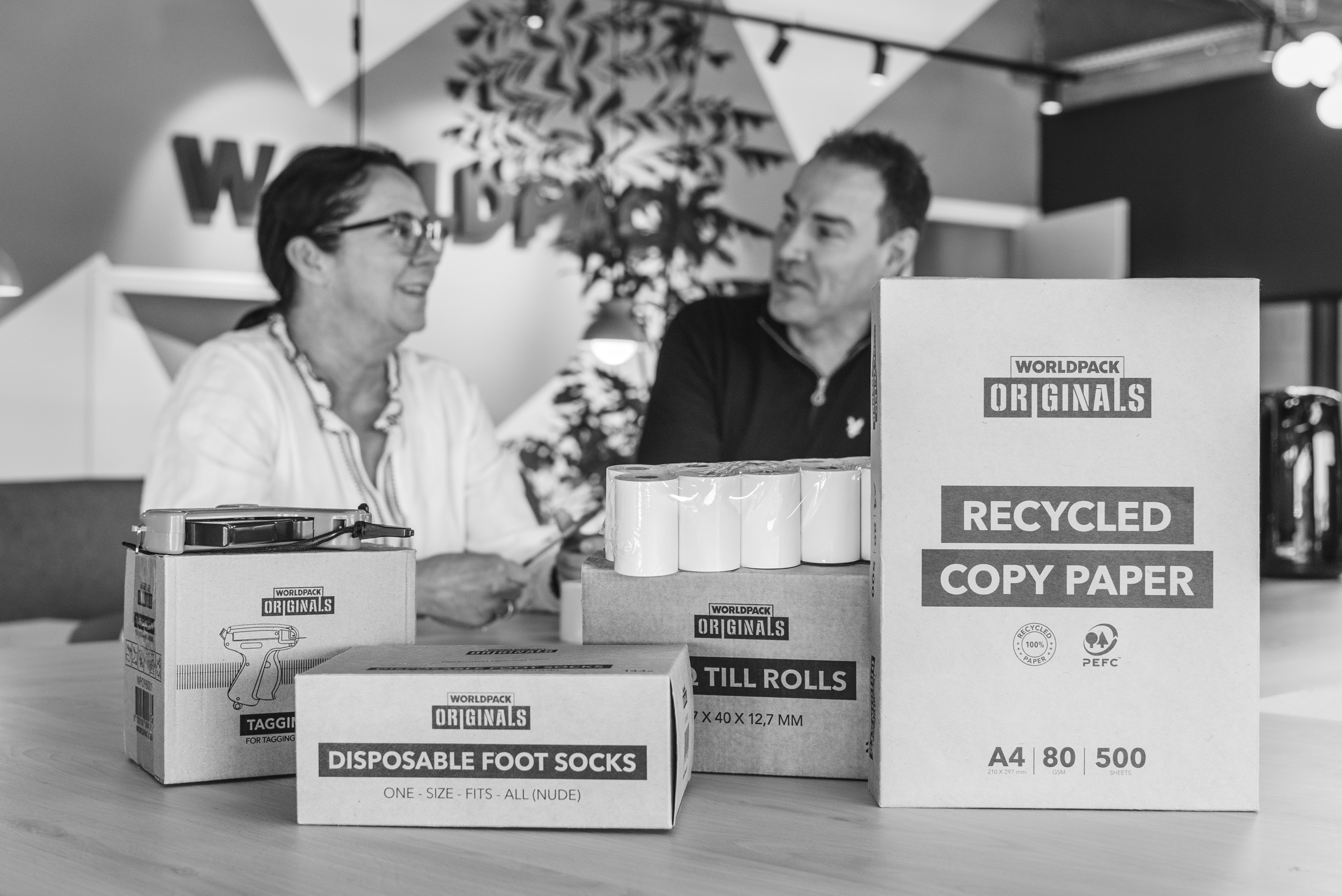Emissions
A key part of our sustainability objectives is reducing our emissions – and that includes Type 1, 2 and 3 emissions.
Direct emissions and indirect emissions by Worldpack (Type 1&2)
The move to our new warehouse in 2022 has helped us to reduce many of our direct and indirect emissions thanks to the A+++ energy rating of the building.
Our office space is using 33% less electricity and 100% less gas thanks to a new heat pump and we have set an intention to purchase 100% Dutch wind energy when our current energy contract expires. This should help us to reduce our indirect emissions even further.
We are continuing to explore the use of solar panels to generate energy, which would reduce our reliance on power from suppliers and enable us to reliably trace more of our emissions for accountability.
The efforts we have made to change our fleet of vehicles from 2021 has meant that the fuel consumption from our vehicle fleet is down by 50%. Currently, 50% of our fleet is low-emission vehicles. Overall, our CO2 emissions are down 9%.
This progress is hugely important for us to maintain as we head towards the end of 2023.
Indirect Emissions (Type 3)
Indirect emissions continue to pose a challenge for us. Gaining reliable data means working closely with, and carefully choosing our suppliers and partners for full transparency. This is important not to shy away from. Type 3 emissions are the hardest to track but Worldpack is working hard to grow our knowledge year-on-year.
During 2022, our transport activities were responsible for 14,877 tonnes of CO2 emissions and included land, air, and sea transport. As we previously detailed in last year’s sustainability report, our major transport partner DHL’s CO2 emissions were 100% offset under the GoGreen programme. DHL accounted for 67.97% of our outbound shipments in 2022 which is encouraging progress.
To help support our delivery partners to meet their own targets, in turn helping us to meet ours, we use a ‘compressed packaging’ approach; trying to fit as many products and shipments on as few pallets and trucks or containers as possible. With compressed packaging, we can pack 100% more of our sturdy PP woven shopping bags in one outer box.
We also endeavour to send full containers for sea freight, reducing empty or split container numbers and for outbound trucking, we ship ‘double stacked’, so that as little air as possible is transported.
Naturally, in our work, we receive goods and packaging from our suppliers that adds to our indirect emissions. We have begun to improve our waste separation process in our warehouse, so that more waste can be recycled or re-used – removing the need for it to go to landfill.
There are at least one or more containers with separation instructions on the corner of each rack and we aim to raise staff awareness of waste separation. This approach has seen the proportion of non-separated waste decrease from 35.58% in 2021 to 30.24% in 2022.
We re-use pallets that come to us for our own storage, or in our own shipments, and we repair some that are salvageable. Any pallets that are worn out or broken are recycled.
But it’s important we emphasise there is still work to be done. Our total waste volume spiked by 262% in 2022, mostly due to the relocation of our warehouse. We expect this to drop in 2023 and will be working hard to make sure that it does.
Materials
Investing in sustainable products has continued to be a significant focus for us. For our stakeholders, having a sustainable assortment of products ranked as very important in our recent engagement survey.
We’ve continued to expand our range, delivering a huge number of Bags for Life. Made from 80 g/m² recycled PET (RPET) non-woven material, it consists of 90% post-consumer waste and 5% ocean litter. This ensures a long lifespan, circularity of PET plastic, removes waste from the ocean and is 100% recyclable at the end of its life.
Growing on our progress from 2021, we have changed the material composition of some products to increase their recyclability.
We have converted our standard PE Cash Bags to at least 80% recycled post-consumer material (PCR) and we’ve been looking at all our products with a view to taking them from multi-material composition to single-material composition, wherever possible. This all helps to boost the possibility of that product being recycled at the end of its life.
Procurement
Responsible procurement is important to us and our stakeholders. We continue to minimise our suppliers in Asia, looking for closer and more local alternatives wherever possible to minimise the impact on the environment for our European customers. Currently, 13% of our supplies come from Asia.
This approach also helps us to audit for transparency, reliability, and ethics regarding working conditions.
We have compiled data on supplier risk, using the Modern Slavery Index and the Corruption Perceptions Index that guides our decision making and processes when choosing to work with a supplier.
We remain resolute in reserving the right to terminate our contract with any supplier that fails to meet our standards and from 2023, our audits must meet SMETA 2 (Sedex Members Ethical Trade Audit) standards.
There are many other areas of our business, including our business ethics and our health and safety commitments to our staff, where we are striving for change. You can read more about these in the full sustainability report.
We are proud of the progress we have made in 2022 and our renewed efforts to deliver on our Sustainability with Guts.
If sustainability is a priority for you in 2023 and beyond, then speak to our team on +31 (0) 88 494 20 80 or email us at online@worldpack.eu


